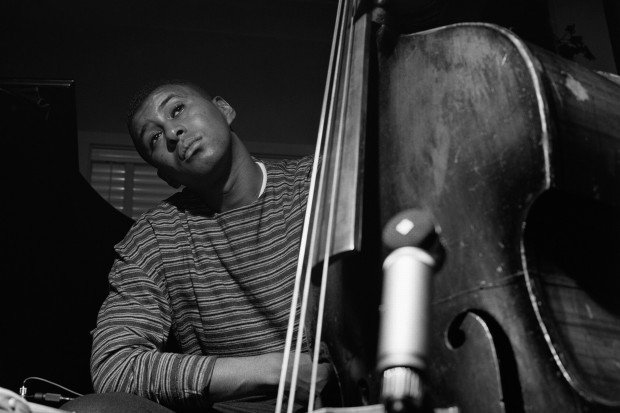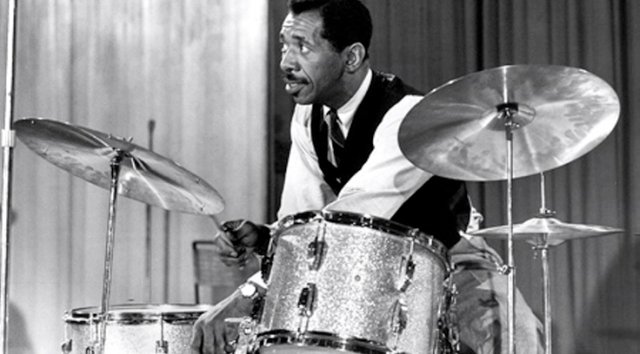Sonny Rollins (tenor sax), Red Garland (piano), Paul Chambers (bass) and Philly Joe Jones (drums). Extraído del álbum Tenor Madness (1956).
Paul Chambers was a jazz double bass player who practiced his profession during the 1950s and 1960s. He was known for his perfect timing and intonation, a fluid technique, a wide variety of notes, a magnificent sense of swing and his virtuous improvisations. From 1955 to 1963 he was part of the Miles Davis Quintet, with whom he recorded historic albums such as Kind of Blue. After leaving Davis he played in Wynton Kelly’s trio until 1968. In 1969 he died of tuberculosis at 33 years old.

Paul Chambers
Philly Joe Jones was a jazz drummer who in the 1940s started playing in rhythm and blues bands. He was mainly influenced by Tadd Dameron, with whom he played in the late 1940s and early 1950s. He was a member of the Miles Davis Quintet from 1955 to 1958, and Davis said Jones was his favorite drummer. Between 1967 and 1972 he lived in London and Paris. He then returned to Philadelphia, formed a band called Le Grand Prix, toured with Bill Evans, recorded for Galaxy and played with Red Garland. From 1981 he led the Dameronia group until his death in 1985 from a heart attack at the age of 62.

Philly Joe Jones
The theme is cheerful and smiling, and right away Rollins makes his solo with short phrases, taking his time, but lengthening them at the end. Unusually, since it’s not normal for the double bass player to perform his solo so soon, Chambers enters playing it slowly and at pleasure, giving way to Garland who makes his solo enjoying every note smoothly. Then Roach comes in giving accurate hits and exchanging four-bars solos with Rollins. And now all that remains is the re-exposure of the theme.

Buena música. En esta canción todos los instrumentos han tenido parte protagonista. Ha destacar el sólo de Paul Chambers con su doble bajo.
Downvoting a post can decrease pending rewards and make it less visible. Common reasons:
Submit
Gracias, Vicente. Me alegro de que te guste.
Downvoting a post can decrease pending rewards and make it less visible. Common reasons:
Submit